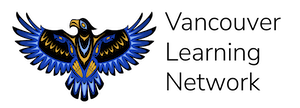English 10 Composition
English Composition 10 Course Overview
Big Ideas
The exploration of text and story deepens our understanding of diverse, complex ideas about identity, others, and the world. | Texts are | Language shapes ideas and | Engagement with writing processes can support creativity and enhance clarity of expression. |
From: https://curriculum.gov.bc.ca/curriculum/english-language-arts/10/composition
Introduction
English Composition 10 is a 2-credit course section in English Language Arts 10. You must complete this course sectionas well as one other 2-credit course section to meet the mandatory 4 credits necessary for graduation. Successful completion of this course is necessary to move on to English Studies 11.
This course aims to develop your ability to communicate ideas in a variety of formats including academic essays, personal narrative response, and formal presentations. You will work to develop your writing skills through personal narrative response, creative writing, expository writing, and analytical literary responses. To develop your writing skills, you will engage with a variety of forms of literature and writing, and develop analysis in a variety of written formats from a variety of personal, social, and cultural backgrounds and perspectives.
Where does this course fit?
- Prequisite Course(s):English Language Arts 09
- Follow Up Course(s):
Any 4-credit course option for English Language Arts 11
- ➢ Composition 11
- ➢ Creative Writing 11
- ➢ Literary Studies 11
- ➢ New Media 11
- ➢ Spoken Language 11
- ➢ English First Peoples: Literary Studies + New Media 11
- ➢ English First Peoples: Literary Studies + Spoken Language 11
- ➢ English First Peoples: Literary Studies + Writing 11
- Graduation Status: One of the Grade 10 English Language Arts options required for graduation
Course Materials
We strongly recommend you use a laptop or desktop computer running Windows, Word, and PowerPoint. Audio and recording capability for some of the assignments is mandatory.
You can obtain the novel and play from the VLN bookroom or from your local public library.
Brief Outline
Unit | Description |
Module 1: Getting Started | Focus: research, note-taking, outlining and plan your presentation and essay from a choice of topics. |
Module 2: Grammar & Writing Skills | Focus: sentence structure, common sentence and writing errors, editing and revision of writing. |
Module 3: Short Stories | Focus: analytical reading, creative writing and analytical writing. Students will read a variety of short stories, connecting with key literary elements, and develop detailed written responses in a variety of formats. |
Module 4: Poetry | Focus: Analytical Reading and Creative Writing. Students will read a variety of poems, learn key forms and devices, and develop detailed responses. Students will bring learning together in a final creative portfolio of poems and poet analysis presentation. |
Course Exam | Exam will focus on the grammar and writing, short story and poetry units. Questions will review essential content and key skills. Students will develop short answer responses, paragraph responses and a short essay. |
Module 5: Independent Novel Study | Focus: Analytical reading, creative writing and analytical writing. Students will develop a variety of responses on various aspects of the novel through in depth study of literary elements, devices and rhetoric. |
Module 6: Drama Study | Focus: Analytical reading, Narrative Response, Creative Writing and Literary Response. Students will develop a variety of responses on various aspects of the William Shakespeare’s play ‘A Midsummer Night’s Dream’. Students will bring unit learnings together in a final persuasive theme essay. |
Assessment Percentage Breakdown
Assessment Type | Percentage of the Course |
Assignments | 41.5% |
Projects | 17.5% |
Discussions | 6% |
Course exam | 35% |
You have up to a year from activation to complete your course.

